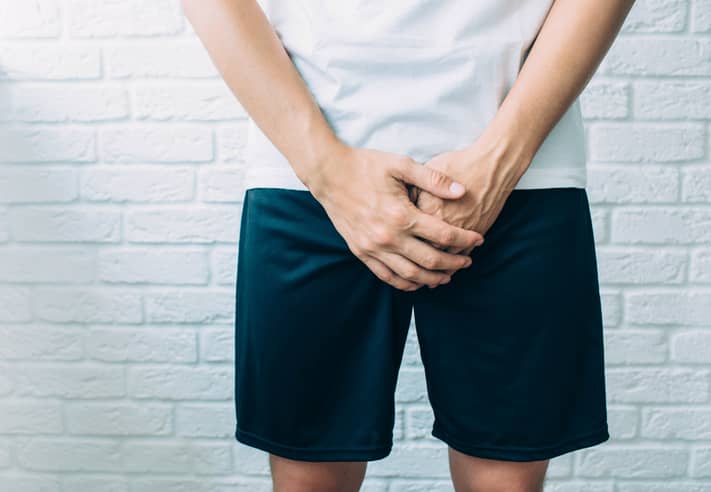Having a sore penis can be a frustrating and unpleasant experience. It may be caused by injury, or could be a sign of a more serious health condition, such as:
- a sexually transmitted infection (STI)
- swelling of the penis head (balanitis)
- a yeast infection (thrush)
- a skin condition that affects the whole body (psoriasis or lichen planus)
- penile cancer
A sore penis isn’t always something to worry about, but it’s important to find out what’s causing it.
Possible causes of a sore penis
Is it an injury from masturbation?
Masturbating too often or too vigorously can cause your penis to become sore and red.
If you masturbate too much in a short space of time your penis can swell up (oedema), due to the build up of fluid in the tissue.
If the lymph vessels that carry this fluid around the penis become blocked there’s also a risk of getting a temporary hard lump (lymphocele), which is generally painless.
It’s not just masturbation either -- sex can cause the lump too.
Have you got a sexually transmitted infection (STI)?
Some of the most common STIs have symptoms of redness and soreness due to swelling, sores, lumps and bumps on the penis. They include:
- genital warts -- growths or lumps that can be itchy
- genital herpes -- small painful blisters that burst to leave red, open sores
- gonorrhoea -- causing swelling of your foreskin, causing redness at the tip
Is it caused by balanitis?
Balanitis is the general term used to describe swelling or irritation of the head, and sometimes foreskin, of the penis.
It can cause the penis to be red, irritated and sore and usually happens when you get a fungal infection, an STI, or build-up of a cheesy-looking substance called smegma, which is a natural lubricant found on the head of the penis and under the foreskin.
Could it be thrush?
Thrush is a yeast infection that can have symptoms including skin irritation, a burning sensation and redness around the head of the penis and under the foreskin.
It’s caused by a fungus called candida that occurs naturally in the body, especially in warm, moist areas like the genitals. The fungus can spread during sex.
You’re at higher risk of developing thrush if you have:
- personal hygiene habits such as not drying your penis sufficiently after washing
- a weakened immune system
- large rolls of skin where fungi can grow (obesity)
- diabetes -- high sugar levels and sweat can encourage the fungus to grow
Have you got a skin condition that affects the whole body?
You may get a sore penis as part of a more generalised skin condition such as psoriasis or lichen planus.
Psoriasis is an autoimmune condition that causes skin cells to be replaced more quickly than usual. Symptoms can include redness, pain and splitting of the skin on the penis.
Lichen planus is an itchy rash that can affect many areas of the body, including the genitals. It’s thought to be related to either the immune system or an allergic reaction to medications.
Could it be a sign of penile cancer?
Occasionally a sore penis can be a sign of penile cancer.
This accounts for less than 1% of all new cancer cases in men in the UK and US but it’s important to recognise the signs so you can get treatment as soon as possible if needed.
Symptoms include:
- a growth or sore that doesn’t heal
- a rash
- change of skin colour
- thickening of the foreskin or skin of the penis
If you experience any of these symptoms for 3 weeks or more -- you should see a doctor.
You can also try self-care techniques to treat a sore penis at home.






